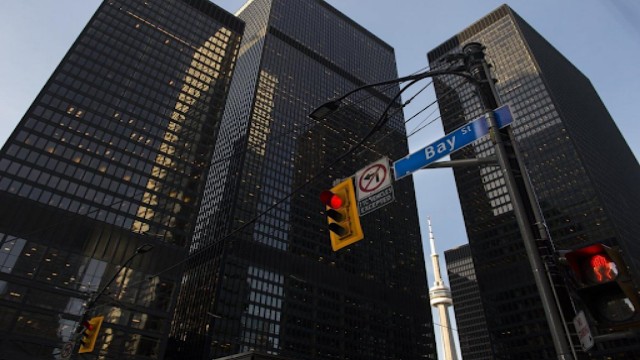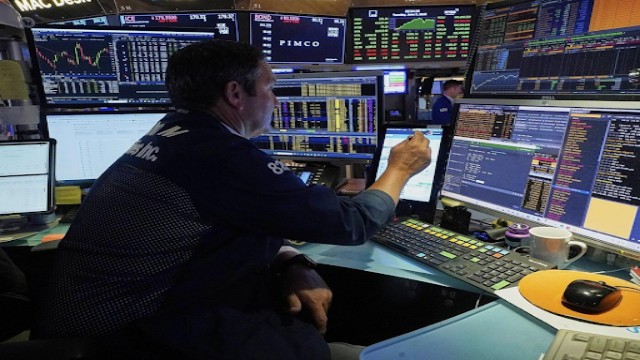
Financial News Canada
Asian stock markets experienced mixed results on Friday as the yen moved between gains and losses. This reaction followed encouraging inflation updates that raised hopes on Wall Street for potential relief on interest rates, possibly as soon as September.
U.S. futures showed varied results, while oil prices saw an increase. The USD/JPY exchange rate dropped by 2.1% overnight, reaching a low of 157.43. This drop led to speculation that Japanese authorities might have intervened to influence the market in response to the softer U.S. inflation data.
In currency trading, the U.S. dollar climbed to 159.26 yen, up from 158.80 yen. Tokyo's Nikkei 225 index saw a decline, falling 2% to 41,388.92. Conversely, Hong Kong's Hang Seng index rose by 1.9% to 18,165.33, while the Shanghai Composite index slipped by 0.2% to 32,965.52, despite data showing an 8.6% increase in China's exports for June, which surpassed expectations.
Australia's S&P/ASX 200 index gained 0.8%, closing at 7,952.20. In South Korea, the Kospi index fell by 1.2% to 2,857.11. Other markets reflected slight shifts, with Bangkok's SET edging up less than 0.1% and Taiwan's Taiex declining by 2%, impacted by a 3.7% drop in Taiwan Semiconductor shares, despite a significant revenue increase reported for June.
The fluctuations in Asian markets followed a mixed performance on Wall Street. Approximately four out of five stocks in the S&P 500 index showed gains, although pullbacks from major players like Nvidia and Microsoft overshadowed this positive trend. These tech giants have been significant contributors to the market's recent rise, leading some to argue that their prices may be too high. Consequently, the S&P 500 fell 0.9% from its recent all-time high.
The downturn in tech stocks also pulled the Nasdaq composite down by 2% from its record. This decline marked the end of a seven-day winning streak for both the S&P 500 and the Nasdaq. In contrast, the Dow Jones Industrial Average, which relies less on technology stocks, increased slightly by 32 points or 0.1%.
On Wall Street, housing-related stocks and real estate firms thrived as investors anticipated lower interest rates. For example, SBA Communications, which operates wireless infrastructure, surged by 7.5%, leading the S&P 500's gains.
Bond markets reacted strongly, with yields dropping as investors adjusted their expectations for the Federal Reserve's interest rate policy. Wall Street hopes for lower rates to relieve the economic pressures of borrowing costs, which have risen sharply. The latest inflation report showed milder price increases for essential items, reinforcing this optimism.
Following this report, Treasury yields fell significantly. The yield on the 10-year Treasury note dropped to 4.20%, a substantial move that generally supports rising stock prices. Lower yields made dividend-paying stocks, such as real estate investment trusts, more attractive to investors.
Overall, the S&P 500 declined by 0.9% to 5,584.54. The Dow edged up 0.1% to 39,753.75, while the Nasdaq fell 2% to 18,283.41. In commodities, U.S. crude oil gained 31 cents to $82.93 per barrel, while Brent crude rose by 21 cents to $85.61 per barrel. The euro also appreciated slightly against the dollar, reaching $1.0869.















